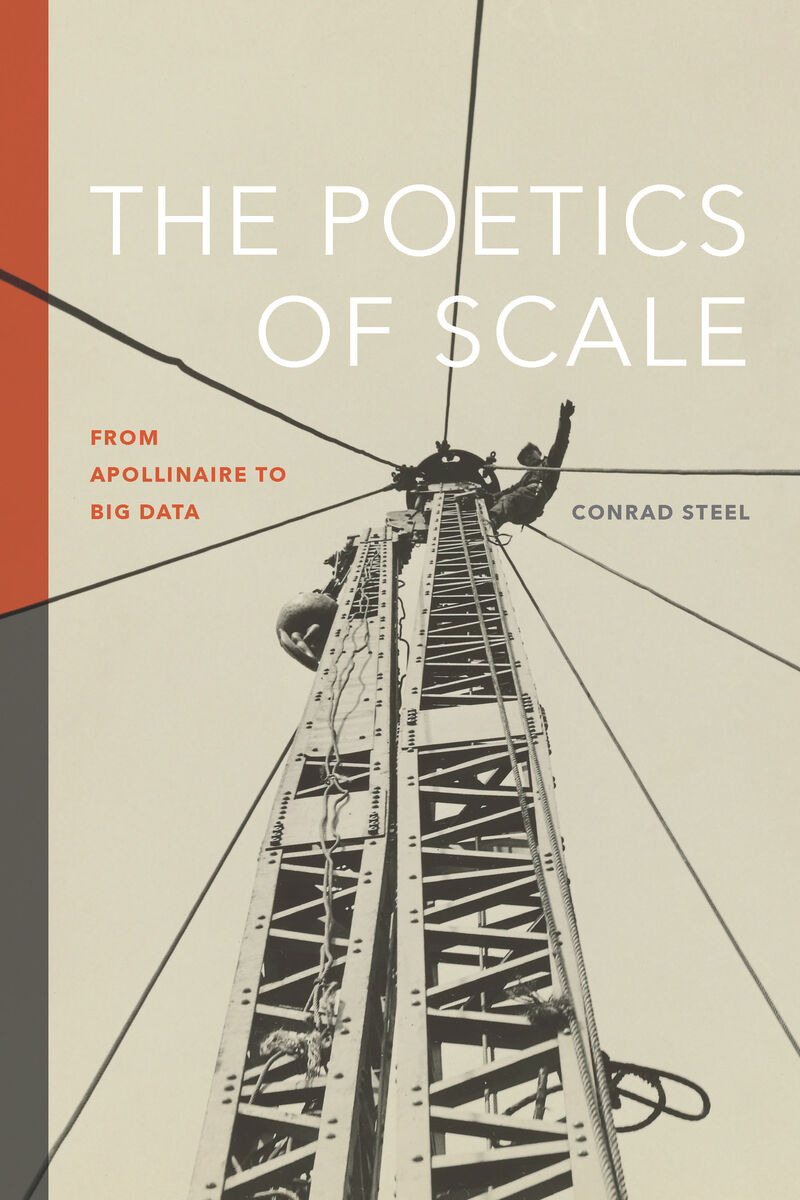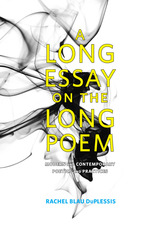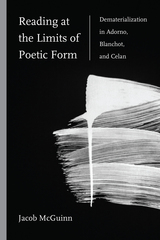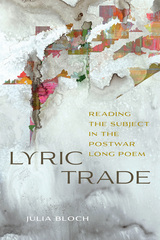The Poetics of Scale: From Apollinaire to Big Data
University of Iowa Press, 2024
Paper: 978-1-60938-931-4 | eISBN: 978-1-60938-932-1
Library of Congress Classification PN1271
Dewey Decimal Classification 809.104
Paper: 978-1-60938-931-4 | eISBN: 978-1-60938-932-1
Library of Congress Classification PN1271
Dewey Decimal Classification 809.104
ABOUT THIS BOOK | AUTHOR BIOGRAPHY | REVIEWS | TOC | REQUEST ACCESSIBLE FILE
ABOUT THIS BOOK
Since the start of the twentieth century, poets have been irresistibly drawn to the image of the poem as a kind of data-handling, a way of mediating between the divergent scales of aesthetics and infrastructure, language and technology. Conrad Steel shows how the history of poetry—with its particular formal affordances, and the particular hopes and fears we invest it with—has always been bound up with our changing logistics of macroscale representation.
The Poetics of Scale takes us back to the years before the First World War in Paris, where the poet Guillaume Apollinaire claimed to have invented a new mode of poetry large enough to take on the challenges of the coming twentieth century. This history follows Apollinaire’s ideas across the Atlantic and examines how and why his work became such a vital source of inspiration for American poets through the era of intensive American economic expansion and up to the present day. Threading together Apollinaire’s work in the 1910s with three of his American successors—Louis Zukofsky in the 1930s, Allen Ginsberg in the 1950s, and Alice Notley from the 1970s onward—it shows how poetry as a cultural technique became the crucial test case for the scale of our collective imagination.
The Poetics of Scale takes us back to the years before the First World War in Paris, where the poet Guillaume Apollinaire claimed to have invented a new mode of poetry large enough to take on the challenges of the coming twentieth century. This history follows Apollinaire’s ideas across the Atlantic and examines how and why his work became such a vital source of inspiration for American poets through the era of intensive American economic expansion and up to the present day. Threading together Apollinaire’s work in the 1910s with three of his American successors—Louis Zukofsky in the 1930s, Allen Ginsberg in the 1950s, and Alice Notley from the 1970s onward—it shows how poetry as a cultural technique became the crucial test case for the scale of our collective imagination.
See other books on: American poetry | Big Data | Poetics | Poetry, Modern | Scale
See other titles from University of Iowa Press



























